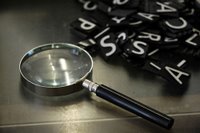Illegal, Unconstitutional NSA Searches: Is There Now a Plaintiff with Standing?

Since the time that the illegal NSA-wiretapping program was reported (and emphatically confirmed by President Bush), there has been an open question remaining whether any single individual actually has "standing" to sue the government to stop this illegal activity under the FISA law, Section 1983, or otherwise.
In a sentence, standing is a judicial doctrine that means that in order to raise a constitutional challenge in the courts--in order for a court to listen to your lawsuit--you must be able to show an injury of some kind, you must be able to show a causal connection between that injury and the conduct of which you are complaining, and you must be able to show that a favorable ruling might redress the harm.
The primary problem with challenging the NSA program in courts was thought by many to be the inability to prove that any specific person was wiretapped, that is, that they were personally harmed. Courts generally do not like speculation or presumptions about these sorts of things. You see, although it is patently obvious that the narrow program "confirmed by the President" (likely one of many other yet-undisclosed illegal programs) violates FISA, many courts would probably refuse to hear a lawsuit pointing this out unless somebody could show that the illegal program specifically harmed them.
Now, however, this may no longer be the case. In a post at the Daily Kos, Georgia10 explains:
Earlier this month, Wendell Belew and Asim Ghafoor, attorneys in Washington, D.C., sued the federal government in what was the latest of a series of lawsuits based on illegal domestic spying. Belew and Ghafoor represented Al-Haramain Islamic Foundation, an Islamic charity which was indicted for allegedly funneling money to terrorists. The charges were eventually dropped.
Oops! An Accidental Disclosure...
In May 2004, the government had accidentally provided these lawyers with documents that included transcripts/summaries of conversations between Belew and Ghafoor, the attorneys, and their client, Suliman al-Buthe, who was the director of the charity. The documents, marked "Top Secret" were then passed on to David B. Ottaway, a reporter for The Washington Post. When it found out it let this "national security document" slip through its fingers, the FBI demanded it back. Ottaway gave it back to the FBI.
The lawyers contend that those transcripts are evidence that they were victims of the President's illegal domestic spying program. It is highly unlikely a judge--even a FISA court judge--would allow the government to violate the attorney-client confidentiality and wiretap an attorney's phones.
Now, the two attorneys who allege being illegally wiretapped and the charity are represented in this lawsuit by Tom Nelson, among others. Tom Nelson, in turn, not only represented the charity in its original terrorism case, but he also represented Brandon Mayfield, who was the attorney mistakenlyaccused of assisting in the 2004 Madrid train bombings. Nelson himself claims his law office was illegally searched as part of the government's investigation into the charity's terrorism ties.
I had missed the articles that Georgia10 cites when they were published, so this is all news to me. While she emphasizes the problems with storing such sensitive documents--and the potential embarrassment to the Congress if the courts act first to end this constitutional crisis--to me, the biggest implication of documents like these (assuming they contain what is alleged) is that now there are plaintiffs who can present a case without getting thrown out of court for lack of standing.
The upshot is that even if Specter's Judiciary Committee or Roberts' Intelligence Committee do not act, there may still be hope for checking the Executive's overreach.
(photo by catnamedvirtue)

0 Comments:
Post a Comment
<< Home